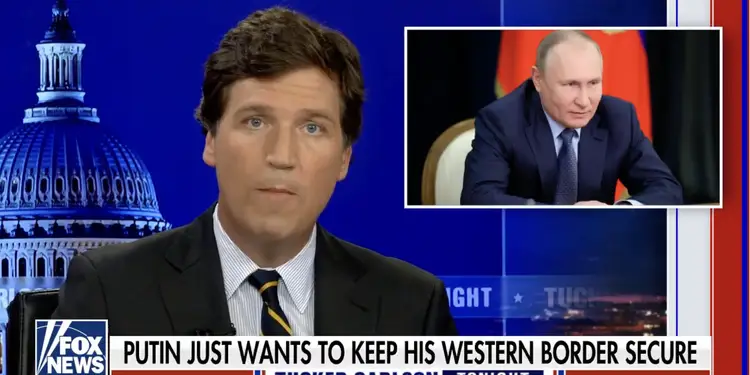Tucker Carlson Shifted American Public Opinion Against the U.S. Military

In an era where political polarization seeps into every facet of American life, Tucker Carlson’s impact on public perception of the military stands out as a particularly striking development. As Kevin Baron of Defense One notes, the former Fox News host has played a significant role in turning segments of the American right, traditionally staunch supporters of the military, against the institution and its leaders. This shift marks a departure from past criticisms that were primarily directed at Democratic politicians for their influence on military policies.
Carlson’s approach was not merely critical but personal and targeted, focusing on high-ranking officers such as Joint Chiefs Chairman Gen. Mark Milley. By painting Milley and others as out of touch with traditional military values and too aligned with “woke” politics, Carlson effectively tapped into the growing discontent among his viewers. His rhetoric, filled with disdain for efforts to address racism within the ranks or to champion diversity and inclusion, positioned the military’s leadership as adversaries rather than revered protectors of the nation.
The consequences of Carlson’s narrative are reflected in the declining confidence Americans have in their military. Polls from the Reagan Forum indicate a significant drop in the public’s regard for the military, from 70% in 2018 to a low of 45% during the Biden administration’s first winter. While “over-politicization” was cited by respondents across the political spectrum, it was notably more concerning to Trump supporters, illustrating the deep partisan divide influenced by figures like Carlson.
Carlson’s critique extended beyond social issues to include policy stances, particularly the military’s support for Ukraine against Russian aggression and its stance on China. These positions further fueled the perception among his audience that the military’s leadership was not only ideologically misaligned with conservative values but also strategically misguided.
Despite the broad reach of Carlson’s influence, the core of American support for the military remains resilient. Recent polling suggests that a majority of Americans, regardless of political affiliation, still hold either “a great deal” or “some” confidence in the military. This enduring support underscores the distinction many Americans make between the political narratives spun by media figures and the apolitical, patriotic service of the nation’s armed forces.
The upcoming transition of leadership within the Pentagon will undoubtedly attract attention and criticism, potentially continuing the cycle Carlson helped perpetuate. Yet, the underlying respect for the military’s apolitical service to the country suggests that the impact of partisan commentary has its limits.
Carlson’s narrative, while influential, does not fully capture the complexity of Americans’ views on their military. The challenge for future military leaders will be to navigate these politicized waters while maintaining the institution’s integrity and apolitical stance. As the military faces new leadership and ongoing scrutiny, the legacy of Carlson’s commentary serves as a reminder of the potent influence media figures can wield over public opinion and the necessity of safeguarding the military from becoming a pawn in political battles.

